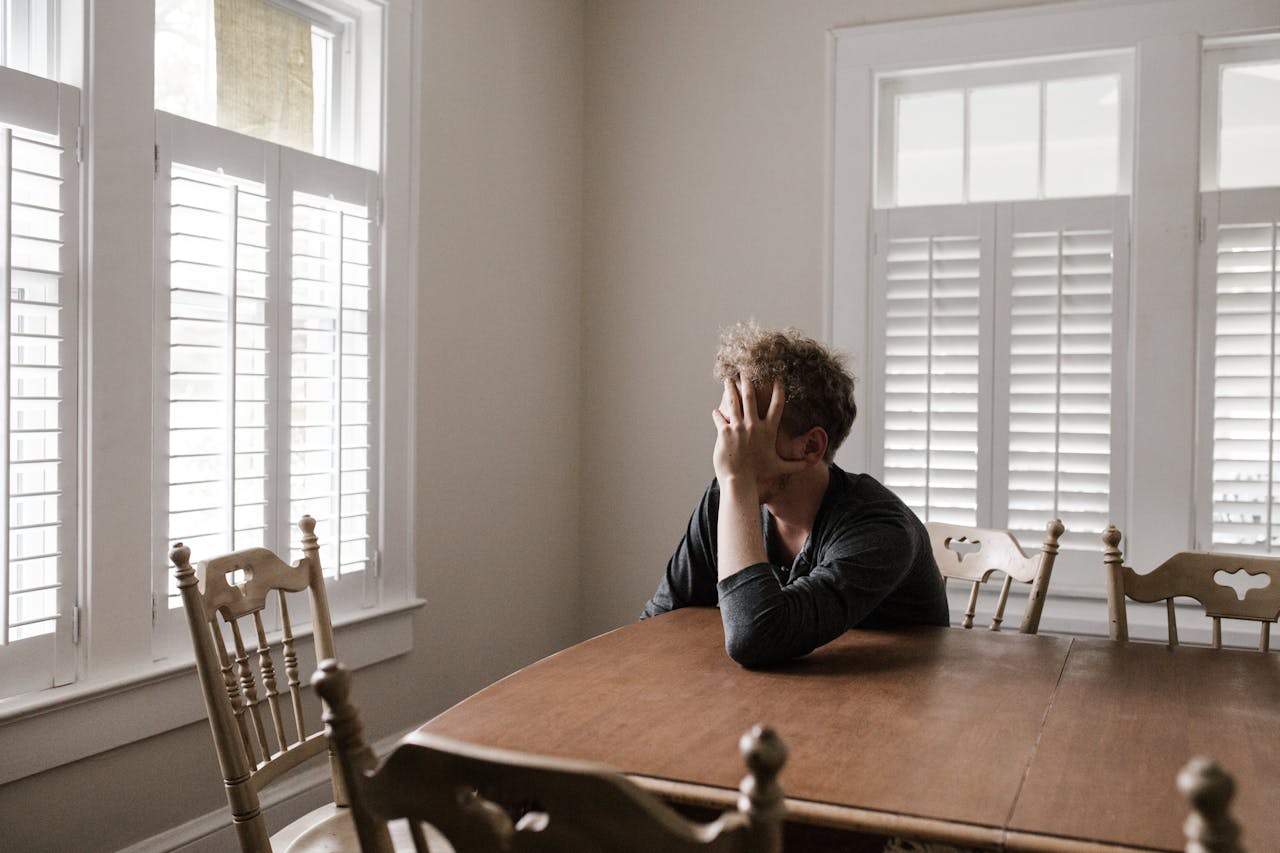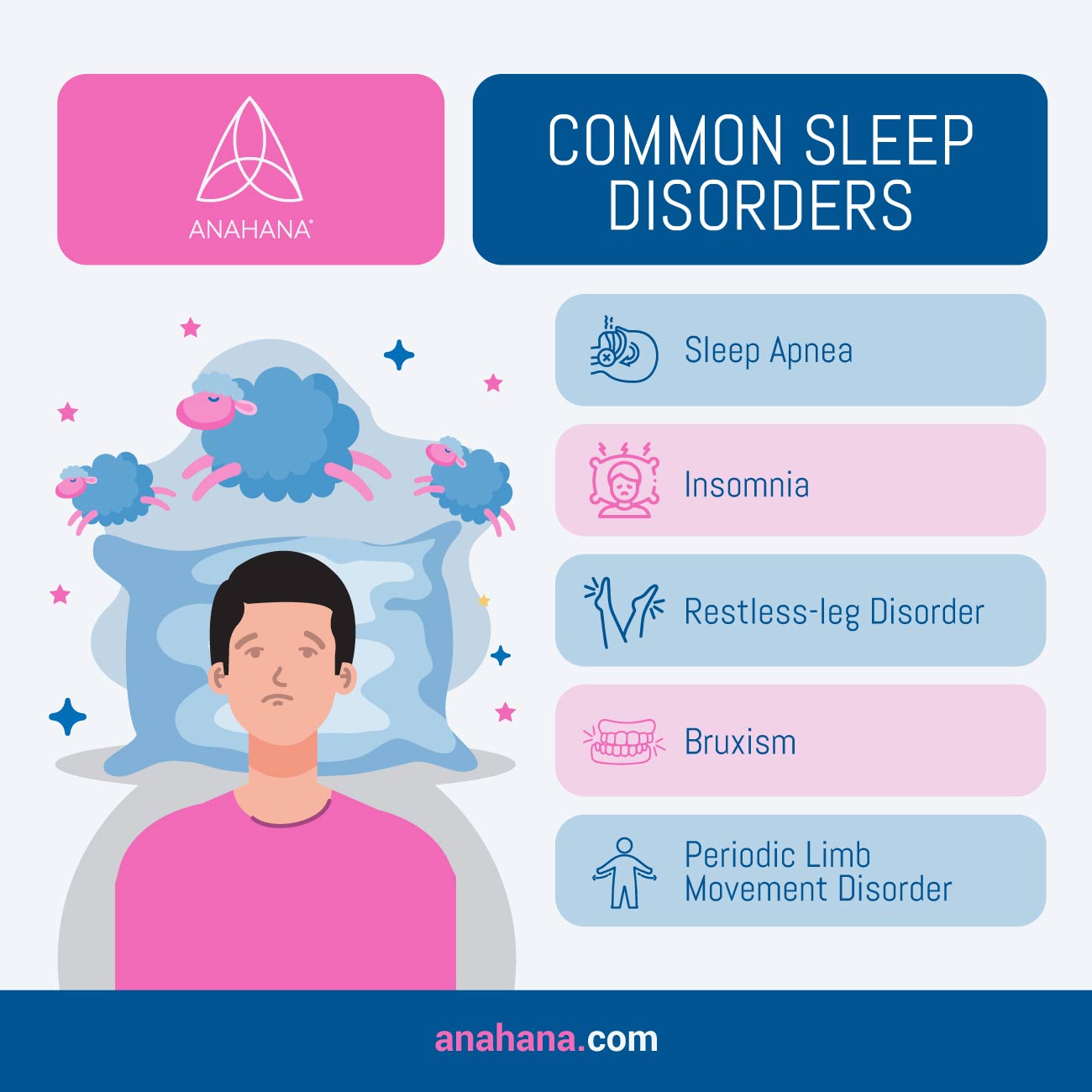
Table of Contents
Sleeping disorders and an improper sleep routine will leave you lacking energy during the day. Effective sleep hygiene will reduce tiredness, which can help you get enough sleep and wake up refreshed.
Key Takeaways
- Seven to nine hours of sleep is ideal for most adults to avoid feeling tired in the morning.
- Lack of restorative sleep can cause grogginess due to disrupted sleep patterns.
- Poor quality sleep from issues like sleep apnea can leave you fatigued despite sufficient hours.
- Assessing how much sleep you need, while following good sleep hygiene habits, can improve rest.
- Sleep hygiene practices like consistent bedtimes can prevent morning fatigue.
- If issues persist, consulting a sleep specialist is recommended.
Why Do I Wake Up Tired
Waking up feeling tired can occur whether you've gotten the recommended eight hours of sleep or got none. Many external and internal factors may cause it.
Sleep inertia can start the cycle of poor sleeping habits and leave people groggy for the rest of the day. Cognitive skills may become lower, which affects the quality of life.
What is Tiredness?
Tiredness, also known as fatigue, is a lack of energy. It is a normal reaction to lack of sleep, and drowsiness is often a symptom. Worry and stress can worsen feelings of tiredness.
Sleep Inertia
Adenosine is a chemical in the mind that causes sleepiness. Sleep inertia is the state between the desire to fall asleep and a decline in performance after waking up. It is a cognitive and sensory-motor impairment.
Common symptoms of sleep inertia include drowsiness or disorientation, poor decision-making, the inability to perform motor tasks, lack of creativity, and difficulty concentrating.
The prefrontal cortex, which controls decision-making and self-restraint, takes longer to become active after waking up from a deep sleep.
Sleep Disorders and Symptoms

Sleep disorders interfere with sleep quality and are common among individuals. They can even occur after a full night's sleep.
If you think you have any of these disorders, contact your doctor. You may discover underlying medical conditions and prevent complications like heart problems.
Sleep Apnea
Sleep apnea occurs when sleep is interrupted by the lungs shutting off and stopping breathing repeatedly. It wakes a person to breathe again.
A sleep test is necessary to diagnose someone with sleep apnea because they might not remember if it happened. Sleep apnea can cause snoring, gasping for air, dry mouth, drowsiness, or headaches.
Insomnia
Insomnia is when a person has difficulty waking up too early, falling asleep, or staying asleep. The signs and symptoms of insomnia include mental health problems like depression, waking up periodically, tiredness, irritability, difficulty concentrating, and low energy levels.
Insomnia can be short-term insomnia, which is very common. Short-term insomnia is usually caused by stress, trauma, or sleeping in an unfamiliar environment, like outside a tent or a hotel room.
Chronic insomnia usually occurs for over a month and could indicate an underlying issue.
Restless-leg Disorder
Restless legs syndrome is an uncontrollable urge that causes pain in your legs, calves, or thighs. It is an uncomfortable crawling feeling that can start in the feet and go up the legs. It can interrupt your sleep and make you tired when you wake up and during the day.
Bruxism
Bruxism is a sleep movement disorder defined by the grinding, gnashing, or clenching of the teeth during sleep.
You can also unconsciously grind your teeth when you're awake. The following symptoms of sleep bruxism are tooth damage, sleep disruption, headaches, jaw disorders, and earache.
Periodic Limb Movement Disorder
Periodic limb movements disorder (PLMD) is when someone unintentionally repeatedly moves their lower limbs during sleep.
The muscles twitch, and the body undergoes jerking movements. PLMD disrupts sleep and causes morning fatigue into the evening time. Limb movements occur every 15 to 40 seconds.
Common Causes of Waking Up Tired
Poor Sleep Hygiene and Environment
Maintaining a daily bedroom routine will help promote peaceful sleeping and sleep hygiene. Breaking helpful sleeping habits can increase your chances of waking up tired. A poor, limp mattress and pillow won't help sleep hygiene.
Your neck and body will not be properly supported. You could wake up experiencing pain, stiffness and body ache. Mattresses also contain allergens such as dust mites, which can cause nighttime sneezing and coughing.
Temperature can also cause sleep disturbance. Too much heat or cold can cause restlessness and make falling or staying asleep hard. Noise impacts sleep quality by increasing the times you wake up from deep sleep at night.
Inconsistent Sleep
Inconsistent sleep can be affected by work and school schedules and the time you go to bed. Napping during the day will make it harder for you to sleep at night.
Going to bed at different times will mess up your internal sleeping clock while going to sleep past midnight might lessen your sleeping hours.
You need to anticipate your daily schedule to create a proper sleep schedule. A good adjustment will lead to good sleep practice.
Electronic Screens
Looking at an electronic screen right before sleep will not make falling asleep easier. Watching TV or scrolling on your phone, tablet, or computer at night may interfere with melatonin release. This hormone regulates the circadian rhythm.
Electronic devices emit blue light that impacts the sleep-wake cycle, which leads to sleeplessness. Blue light is any artificial lighting that emits blue wavelengths, which can boost alertness and mood.
Caffeine and Alcohol Intake
Caffeine is a stimulant that can act as a diuretic, which increases the need to urinate more often. The constant need to use the washroom will disrupt your sleep. Caffeine can also keep you up at night and make you more energized instead of sleepy.
Alcohol can affect REM phases. Though it is a sedative that can make you sleepy, it doesn't help you get restful sleep.
Once the sedative wears off, it can cause you to wake up numerous times and disrupt deep sleep. This increases your likelihood of waking up tired.
The Impact of Sleep Disorder and Tiredness
Sleep disorders worsen energy levels and increase tiredness. Not every individual is diagnosed with a serious sleep disorder, but it plays a huge role in the lives of those with it.
Tiredness will cause you to feel sleepy during the day instead of the night. It messes up your sleeping clock, and you experience high stress, pain, anxiety, and decreased cognition, memory, and performance at work or school.
How to Treat Tiredness
There are many ways to improve your sleep quality and keep a consistent schedule to wake up rejuvenated.
Better Sleep Routine
Your room, or the area where your bed is located, should be a place to rest at night. Good sleep hygiene depends on your environment.
The space should be dark, cool, and silent. After sleeping on a medium-firm mattress with a nice pillow, you'll get better sleep quality, including comfort and minimal pain.
If you have allergies or are dust-sensitive, replace your mattress with a hypoallergenic mattress cover every nine or ten years.
Create a regular bedtime routine that suits your needs and schedule. This could include taking a warm shower, skincare, drinking tea, or reading a book.
Pick a time to stop looking at your phone or an electronic screen at least one hour before sleeping. Set your alarm to ring at a consistent time of day so you can wake up at the same every day.
Open up the Blinds in the Morning
Light is linked with the circadian cycle. Sunlight helps in waking up in the morning. You can also use bright lights. It would help if you went to bed in complete darkness to avoid waking up early.
Don’t Press the Snooze Button
Hitting the snooze button can increase sleep inability and the likelihood of waking up during deep sleep, which worsens sleep inertia.
Set your alarm for eight hours before you wake up or more. You can also stay awake during snooze, using the alarm to disperse sleep inertia.
Dietary and Lifestyle Changes
Avoid large amounts of coffee and drinks or foods that contain caffeine, such as chocolate, teas, soda pops, and other stimulants, six hours before bedtime. Caffeine can also be found in medications.
Alcohol should be taken four hours before sleeping. Alcohol inhibits deep sleep. Also, avoid eating heavily spiced foods because they can cause digestion problems.
Exercise
Try fitting in 30 minutes or more of exercise five times a week. It's important to note you should not perform strenuous activity or exercise before bedtime. You can exercise in the evening, but leave at least an hour before you sleep. Doing this will make it easier to fall asleep.
You can do light stretches to relax your muscles, do yoga, or do a fast walk, depending on your mobility, to get good quality sleep. Exercise is always a great way to improve overall health.
References
Why Do I Keep Waking Up Tired? - Sleep
Waking up tired: Causes and solutions | CNN
6 Reasons You Always Wake Up Tired, According to Sleep Experts
Waking up tired: Causes, symptoms, and treatments
What You Should Do If You’re Waking Up Tired
Tiredness partly genetic say researchers | The University of Edinburgh.
Disclaimer
The contents of this article are provided for informational purposes only and are not intended to substitute for professional medical advice, diagnosis, or treatment. It is always recommended to consult with a qualified healthcare provider before making any health-related changes or if you have any questions or concerns about your health. Anahana is not liable for any errors, omissions, or consequences that may occur from using the information provided.

By: Sydney Garden
Sydney is a skilled writer and editor at Anahana with a diverse educational and professional background. Sydney received her BA (Honors) in Communications from Toronto Metropolitan University and is furthering her education by pursuing her MSc in Human Resource Management at the University of Stirling.
